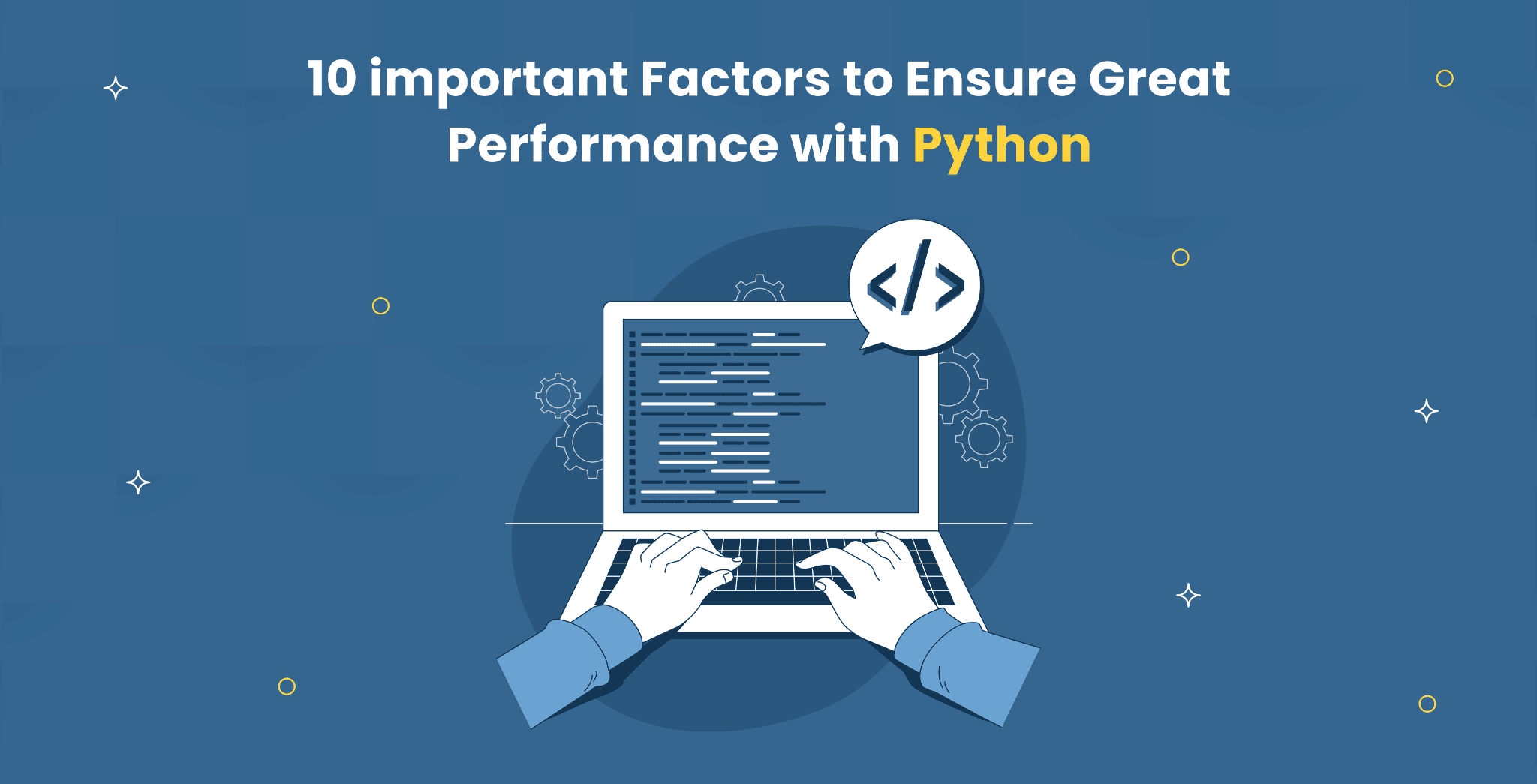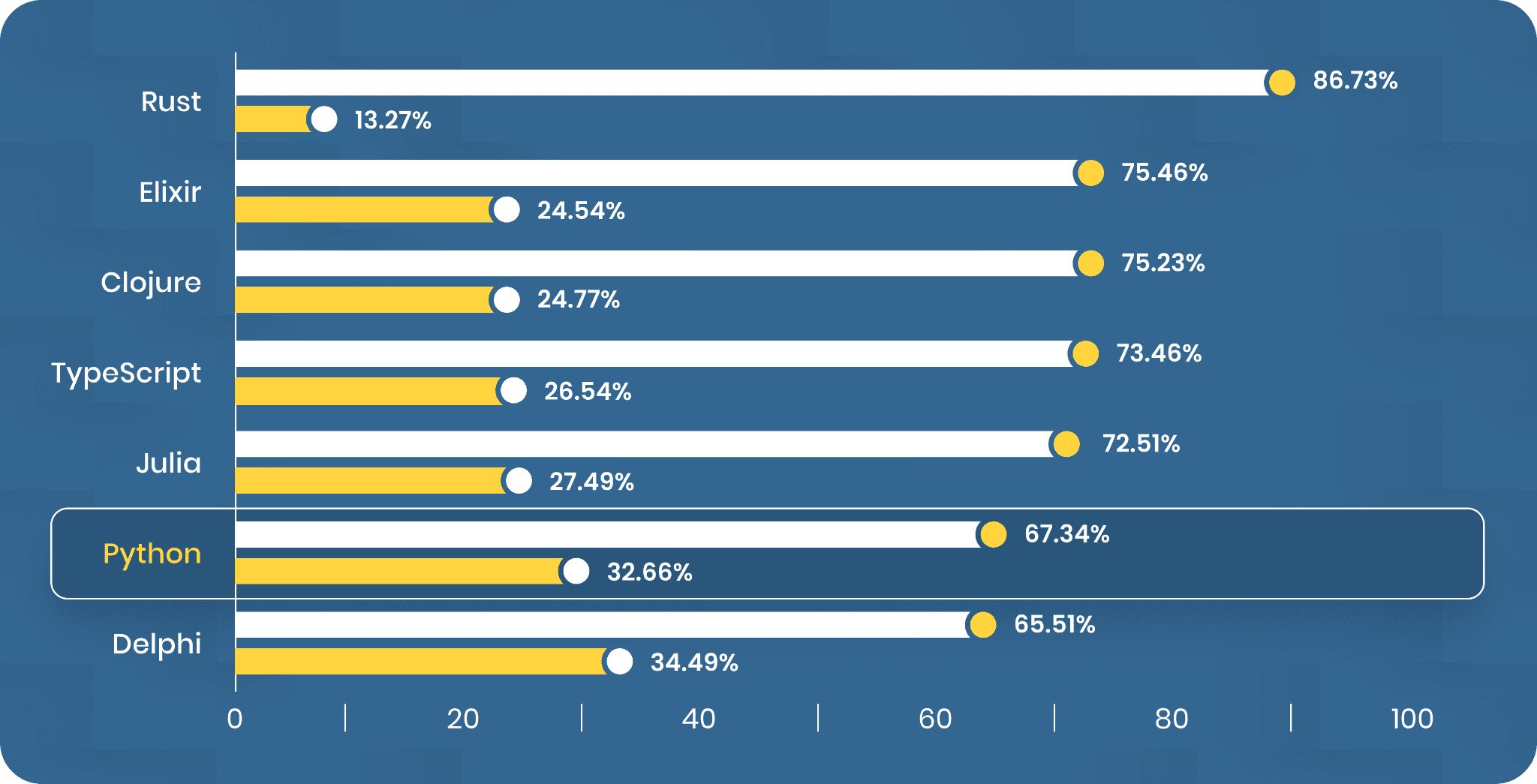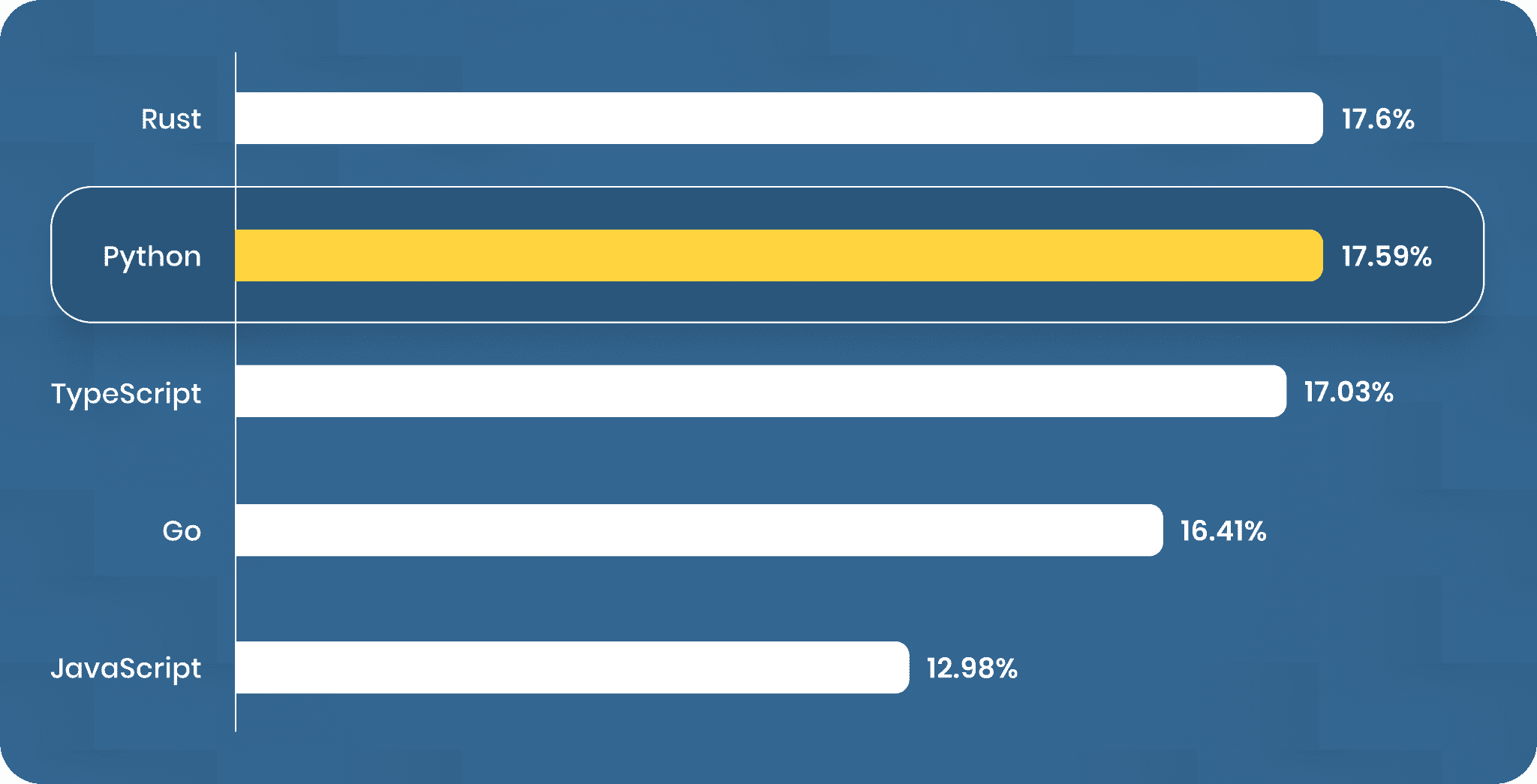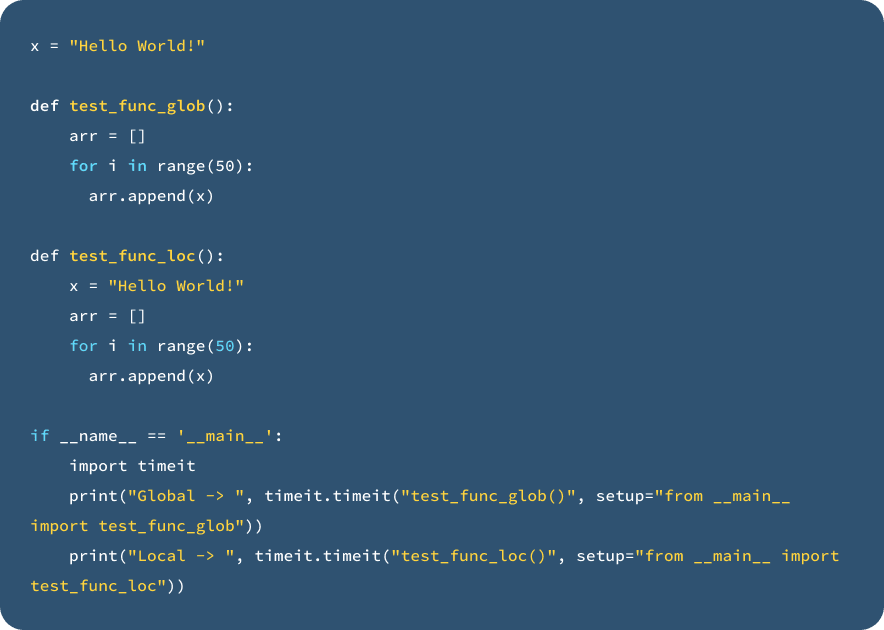
Python was introduced in 1991, and since then, it has been a versatile and reliable programming language for modern computing requirements. In the competitive world of the software development industry, Python excels among the plethora of available programming languages. This comes from its adaptability and simplicity, which make it the ideal choice for developers and companies.
It is a robust language used in data science, web development, software prototype creation, web apps, integrating AI/ML ability in your project, and many other areas. Python is the most favored language because it can solve complex problems, is very easy to learn, and has many tools and libraries to help you with any of your requirements.
Like any other programming language, ensuring Python’s exceptional performance is essential. This becomes even more crucial when the project’s complexity grows. This is when you need to hire a Python developer, as these professionals have expertise in project development that can help you improve your Python app’s performance.
Quick statistics about Python
Since its introduction, Python has garnered widespread attention because of its exceptional features for web and software development. It enables the creation of complex, multi-protocol applications while holding short and readable syntax. A recent survey by StackOverflow shows its increasing adoption.
In a recent StackOverflow survey, 67.34% of respondents voted that they ‘loved’ Python.

The same group of respondents was asked which technology they were not using but would want to develop; 17.59% voted for Python, making it the second most popular and wanted framework right after Rust.

10 essential factors to ensure exceptional performance with Python
Here are some of the best practices you can integrate by top Python development companies in the USA to ensure exceptional performance:
Utilize efficient data structures
Python offers a variety of data structures, such as lists, dictionaries, and sets. Companies utilize these data structures to enhance overall Python performance.
For instance-
Lists can be used to maintain the order of elements and for duplicate data. They’re useful when indexed access to elements or operations like appending, removing, or inserting elements are required.
Sets are ideal when each element needs to be unique. They are well-suited for mathematical operations like intersections, unions, and membership testing.
Use Built-In Functions
Built-in functions of any programming language are always advantageous because you don’t need to write your code from scratch; the same applies to Python. Python comes with a wide array of built-in functions and libraries, which are utilized by Python development companies to implement features across various stages of a development project. Companies can write high-quality, efficient code by leveraging these built-in functions and libraries.
Python libraries are thoroughly tested and optimized, making them reliable. These Built-in functions are easy to incorporate, and by utilizing them, you avoid redundant code and ensure that your code is optimized for your project.
Utilize PyPY instead of CPython
PyPy, developed by the Python community, is an implementation of Python that uses a Just-in-time (JIT) compiler. This feature enhances the speed of Python applications, making them faster than those running on the standard CPython implementation. PyPy is a recommended alternative to CPython when your project demands heavy computational resources.
Avoid using Global Variables
Remember to avoid using global variables, especially in Python. It is better to utilize local variables to track scope and memory usage. Python functions work more efficiently when retrieving local variables than global ones, making memory usage secondary. Therefore, it is best to prevent using global variables whenever possible.
Here’s a quick snippet of code to help you visualize the difference between the use of global and local variables –

Utilize Pythons’s multi-processing module
Python provides a multi-processing option. Companies hire a Python developer to take advantage of this feature, which they use by dividing the codebase into multiple smaller processes and running them concurrently. Optimized processing power can benefit companies by improving overall code performance.
Optimize loops
Loops serve as the fundamental building blocks of a development framework or library. Inefficient loops represent the primary bottlenecks in a project’s performance scores. Optimizing loops can significantly reduce the resources required for their execution, thereby enhancing the software’s response time and availability.
Efficient loops can potentially improve CPU usage, execution time, and crucial processes such as data processing and scientific computing. Optimized loops can also improve code maintainability, readability, and overall performance of Python projects.
Utilize C extensions
C is a compiled language that can execute code faster than Python. Python can easily integrate with C and C++, allowing you to execute code more efficiently in C than in Python. Writing some parts of Python code in C and then using it as an extension can improve performance.
Keep Python Updated
To enhance the security and efficiency of your project, it’s essential to use the latest stable version of Python. This will enable you to leverage each update’s newest features and performance enhancements.
Effective use of caching
Caching offers high efficiency in repetitive and mundane tasks. Top Python development company employ caching techniques like memoization, which can catch the results of expensive calls, reduce the execution time, and improve overall performance.
Be lazy with Module importing
To improve Python’s performance, one of the best ways is to distribute the loading of modules and load them only when required. Not all programming languages offer this feature, but Python allows you to optimize memory and processor usage.
For beginners, defining all imports at the beginning of the file is commonly recommended. This is easy for smaller Python programmers, but loading all the modules simultaneously can cause a spike in memory usage for large ones with multiple modules. Lazy loading can significantly improve this overhead.
Wrapping it up!
We have compiled a list of Python optimization tips and tricks to help you develop faster Python applications. These optimization techniques, used by top Python development companies, can improve the reliability of running Python code at different levels, from profiling to memory optimization. This guide is intended to assist anyone considering Python programming for their projects and to help them achieve the best possible Python performance.








